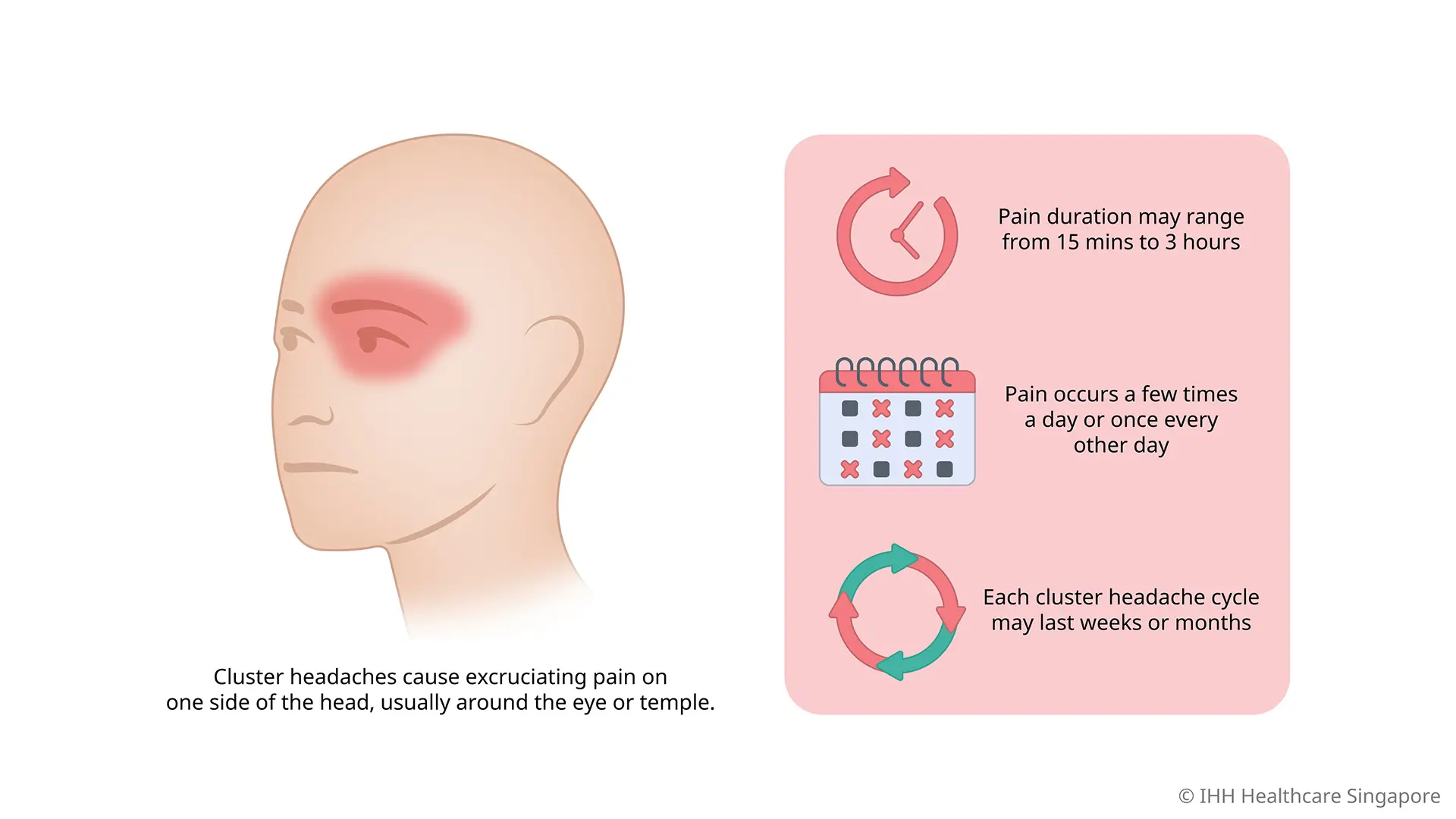Cluster Headache
What is a cluster headache?
A cluster headache refers to a primary headache disorder characterised by intense, recurring pain that strictly affects only one side of the head. Each headache episode or attack can last anywhere from 15 minutes to around 3 hours and may occur up to 8 times a day or once every other day. These headaches tend to occur in clusters, with each cluster period lasting for weeks to months.
Individuals experiencing these types of headaches may experience periods of remission, lasting months or years, where they are free from pain. Cluster headaches are relatively rare but are considered one of the most painful types of headaches.
Types of cluster headaches:
There are two main subtypes of cluster headaches:
- Episodic cluster headaches are the most common type of cluster headaches. They occur in cyclical patterns or clusters, with periods of frequent headaches followed by periods of remission. These episodes can last for weeks or months before subsiding, only to recur later. Attacks tend to occur at a predictable frequency, often at the same time each day (e.g., waking people up at night).
- Chronic cluster headaches occur continuously without significant periods of remission. Individuals with chronic cluster headaches may experience daily or near-daily headaches for an extended period, typically lasting for over a year.
What are the symptoms of a cluster headache?
Symptoms of a cluster headache may include:
- Severe, excruciating pain on one side of the head, usually around the eye or temple
- Restlessness or agitation
- Eye redness or tearing
- Nasal congestion or runny nose
- Facial sweating
- Drooping eyelid or ptosis
- Sensitivity to light or sound
Cluster headaches often occur with remarkable regularity, typically at the same time of day or night, and can last anywhere from 15 minutes to three hours.
When to seek medical attention?
In general, medical attention should be sought for cluster headaches, especially if one had not been evaluated before and received a formal diagnosis.
When to visit an urgent care centre?
Urgent medical evaluation may be necessary for headaches in general if:
- Headaches are accompanied by a high fever, stiff neck, or signs of dehydration
- Headaches occur after a head injury or trauma
- There is a sudden and severe headache, particularly if it is different from previous headaches
- A headache that worsens over days and changes in pattern.
- Jaw pain when eating
- Weakness or numbness in arms or legs.
These symptoms may indicate a more serious underlying condition that requires immediate evaluation and treatment.
What causes a cluster headache?
The exact cause of a cluster headache is not fully understood, but they are believed to be related to abnormalities in the hypothalamus, a region of the brain that regulates the body's internal clock and circadian rhythms.
Some theories suggest that it may be due to an overactivity of the trigeminal nerve, which transmits signals from the face to the brain, resulting in pain.
Alcohol consumption, certain foods, or cigarette smoke may also trigger a cluster headache attack.
What are the complications of a cluster headache?
Cluster headaches themselves are not life-threatening, but they can cause a range of complications that significantly impact your well-being:
- Impaired quality of life due to severe pain and associated symptoms
- Interference with work, social activities, or relationships
- Anxiety or depression due to chronic pain.











